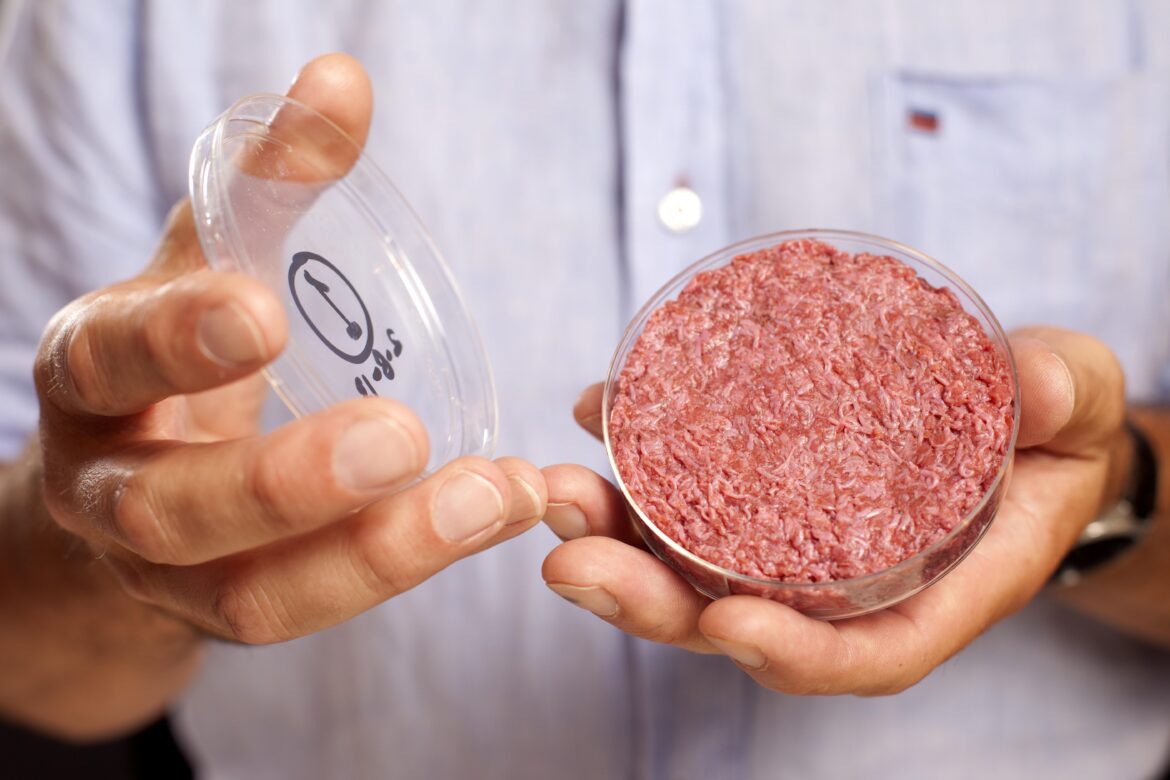The food industry may be getting closer to the introduction of lab-grown, or cultured, meats.
Cultured meat is is created in a lab by feeding nutrients to animal cells that have been taken from poultry or livestock. It’s seen by advocates as one possible solution to the environmental impacts of raising animals for meat consumption.
“I suspect that if the success of other plant-based meat alternatives such as the Impossible Burger and Beyond Meat are any indication, cultured meat would likely be readily adopted here as well,” said Sheril Kirshenbaum, science communicator and host of Our Table, a Michigan State University program that brings together stakeholders in the East Lansing community to talk about where food comes from and how it impacts health and the environment
Americans eat a lot of meat – 214 pounds per person per year, Kirshenbaum said – and a 2019 MSU Food Literature and Engagement poll showed that many Americans aren’t yet comfortable with the idea of eating meat from a lab. Of those that said they would try cell-cultured meats, only 25% were over age 40.
Few Americans have even had the opportunity to try cultured meat since it is not approved for public consumption. Singapore was the first government to allow cultured meat to be sold to the public in December 2020. The meat served was a product of Eat Just Inc. No other country has yet approved cultured meat for public sale.
Kirshenbaum said she had the opportunity to eat cell-cultured seafood while working on Capitol Hill, and she would be willing to try cultured meat again in the future.
“Meat isn’t going anywhere, so I don’t see cultured meat as a threat to the agricultural industry,” she said. “I suspect that it will appeal to consumers interested in conserving water and energy and providing fewer greenhouse gas emissions, as well as those concerned about animal welfare or antibiotics and hormones.”
One supportive consumer is Ireland Ingram, a master’s student studying health and risk communication at MSU.
“For me, being vegetarian is truly about the ethical and moral implications the meat industry poses on animal welfare,” Ingram said. “From that standpoint, I would support cultured meat being served since it would translate to less animals being killed for the purpose of consumption. I also believe that this would be a much more sustainable approach to providing meat since it takes almost 1,800 gallons of water to produce one pound of beef.”
Ingram said that although she supports serving cell-cultured meat as an alternative to farmed livestock, she doesn’t think she would participate in eating it.
“I know it is unrealistic to ask everyone to be vegetarian to save the planet, but cultured meat could be a new sustainable approach that also improves animal welfare,” Ingram said.
